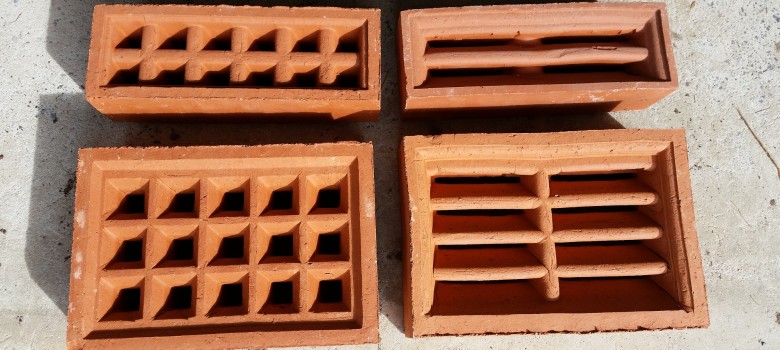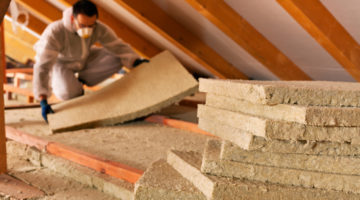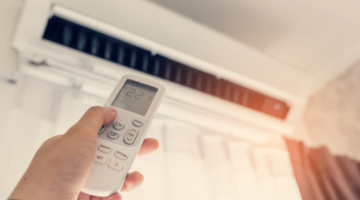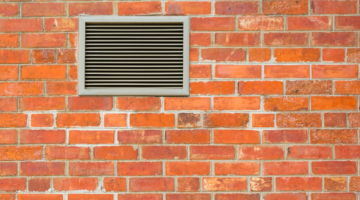
Pretty much every home in the UK will have some form of ventilation, whether that be extractor fans, natural open vents, or black box vents. Many people don’t understand the importance of them, and block them up or cover them with the assumption that more vents mean more draughts. However, this doesn’t have to be the case.
Why is ventilation important?
Ventilation is important in the home for several important reasons. Here are some of the key ones:
- Condensation – If there is not enough air flow in the home, condensation can build up and cause damp and mould. This can be avoided by improving airflow, warming the walls up through insulation techniques and / or use of mechanical ventilation and dehumidification. For most homes, the addition of some vents will greatly reduce this problem.
- Fuel combustion – Older open flue boilers and gas fires rely on good ventilation in the room to create the right environment for the fuel to burn. If vents are blocked off, the air in the room will be used up, and the boiler may start to produce carbon monoxide – a lethal gas. Ventilation is therefore very important if you have one of these older boilers.
- Preventing rot – Homes with suspended timber floors will have ground level vents that allow the air to circulate around the floorboards. This prevents the timber from suffering with damp and eventually rotting.
- Health – Not only are all the above dangerous to health, good ventilation will ensure that you are breathing good quality air and that the rooms don’t get too stuffy.
How much ventilation is needed?
This will vary from property to property, so there is not a hard and fast rule for everyone. There are however, standards that a heating engineer should adhere to when checking your boiler.

If there are very few or no vents in the property, consider getting in an expert to check whether ventilation could help. Installing a vent in your wall should cost no more than £150 or so. A simple solution to a really common problem.
What type of vent is required?
There are a few different types of vent available:
- Terracotta Air Bricks – These are very common on older buildings, and can be found at ground level to ventilate floorboards and at elevated levels to provide room ventilation also. These types of vents work ok but they are liable to allowing wind to blow through the vent creating draughts in the home.
- Black Box Vents – These types of vent are usually made of plastic and have a restrictor inside that prevent winds from flowing freely through them, but does allow steady movement of air. This is a good form of natural ventilation that minimises the efficiency losses inherent in adding ventilation.
- Mechanical Exhaust – Extractor fans, air conditioning units etc all move air around the building and can helpwith issues like condensation. You should not rely on these forms of ventilation to air a room for a boiler however, as they are not 100% reliable like an open natural vent is.
Plastic vent covers
Whilst you may have a vent that appears open, we often see vents that have been covered with a plastic grill designed to prevent flies or rodents from entering the property. Unfortunately these types of grills massively restrict the surface area of the vent holes, reducing the amount of air able to move through the vent. This means that a vent once good enough to ventilate the whole room, will now not have the sufficient area to meet the ventilation requirements.
Are your vents in the right place?
Another common problem we see is that a vent is placed very low to the ground, meaning that even a little snow in the winter will block it, preventing adequate drainage. You may also have vents that have been built around – for example, a new kitchen has been fitted meaning the vent now opens into a cupboard or to a dead space at the back of a unit. Whilst not physically blocked, the vent will no longer be able to perform adequately and you should look at relocating the vent elsewhere.
Ventilation is important
The key message to take away here is that you should be aware of the ventilation in your property and remember to check that both the vents you have are sited correctly and in good working order, but also that they are sufficient.
Think we missed something? Do you have a different opinion?
Comment below to get your voice heard…












A good general overview of the importance of ventilation but it would be good to cover a bit more detail such as the different types of ventilation: uncontrolled, semi-uncontrolled and controlled. Maybe a future article on this?
If air vents installed directly to the outside air (plastic wind tunnels),why haven’t thousands of people who didn’t have them dropped down dead from carbon monoxide poisoning?